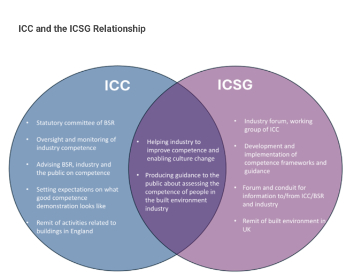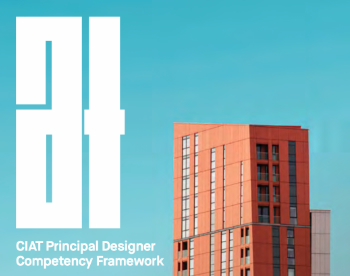Skills gap risks projects intended to benefit society, say half of project professionals across the built environment
Contents |
[edit] Skills shortage and social benefits
Almost half (47%) of project professionals working across the built environment* believe skills shortages could impact the delivery of projects intended to deliver a social benefit, new research by APM has found.
As part of its ‘Future Lives and Landscapes’ campaign, APM (working with research company Censuswide) surveyed 1,000 project professionals currently working on projects across industry sectors (including projects within the built environment) with the primary aim of delivering a social benefit – such as improving living standards, enhancing wellbeing, increasing social equality, or reducing geographic inequality.
The research found 47% of project professionals working in the built environment think that project skills gaps in their sector will affect the delivery of other similar projects at present. Of these, a third (33%) said there are ‘some’ gaps while 13% said there are ‘significant’ gaps. Another 53% reported no skills gaps.
In addition, 37% said project skills gaps are currently the biggest risk to delivering social benefit projects currently, alongside insufficient funding (also 37%). A lack of project professionals in the sector is seen as the biggest risk by 13% of respondents.
[edit] Calls for urgent action
Calls for urgent action to address skills and labour shortages in the built environment have long been made. For instance, an additional 225,000 construction workers are likely to be needed by 2027 to meet projected growth, taking the total to 2.67 million, separate industry research has shown.
Meanwhile, APM’s Future Lives and Landscape 2023 survey also revealed that, when asked if there is sufficient funding to deliver their current social benefit project both on time and to specified quality, only a third (33%) answered yes to both. Some 60% said yes to meeting only the deadline, 3% said yes to meeting only the quality criteria, and 3% said no to both.
Workforce concerns were also identified among 60% of respondents. Some 13% said there weren’t enough project professionals to deliver other similar social benefit projects currently and many more are needed, while 47% said they would benefit from an increase.
[edit] Reactions and comment
Professor Adam Boddison OBE, Chief Executive of APM, said: “It is clear from our study that there are concerns around skills, the numbers of project professionals and funding for social benefit projects across the built environment. It is vital that individuals and those responsible for recruiting for project teams understand the importance of having not only sufficient numbers of project professionals, but also the right skills in place.
“We champion greater professionalism in projects and driving a better understanding of the importance of the use of expert project professionals in project delivery. This includes ensuring organisations and teams having access to the right level of training, qualifications and having more Chartered Project Professionals to raise standards and the outcomes of projects for public benefit.
“It’s important that, as the chartered membership organisation for the project profession, we recognise and highlight the issues impacting project success, and in particular those projects with a benefit to society. Our Future Lives and Landscapes campaign sets out to do this.”
[edit] APM Future Lives and Landscapes
Further information about APM’s Future Lives and Landscapes campaign can be found here
The survey included responses from project professionals working in the architecture, engineering and building sector.
This artical appears on the APM News and Blog site as "Skills gap risks projects intended to benefit society, say half of project professionals across the built environment" dated June 28, 2023.
--Association for Project Management
[edit] Related articles on Designing Buildings
- Building social value.
- Construction contract.
- Construction Social Value Steering Group.
- Corporate social responsibility in construction.
- Creating social value from civil engineering projects.
- Framework agreements.
- One Public Estate OPE.
- Procurement route.
- Prosperity.
- Public procurement.
- Social benefits.
- Social cost.
- Social sustainability.
- Social time preference rate.
- Social infrastructure.
- Social Value Act.
- Social value: Gearing up for giving back.
- Social value and design of the built environment.
- Social value in new development.
- Social value overview.
- Sustainable procurement.
Featured articles and news
Twas the site before Christmas...
A rhyme for the industry and a thankyou to our supporters.
Plumbing and heating systems in schools
New apprentice pay rates coming into effect in the new year
Addressing the impact of recent national minimum wage changes.
EBSSA support for the new industry competence structure
The Engineering and Building Services Skills Authority, in working group 2.
Notes from BSRIA Sustainable Futures briefing
From carbon down to the all important customer: Redefining Retrofit for Net Zero Living.
Principal Designer: A New Opportunity for Architects
ACA launches a Principal Designer Register for architects.
A new government plan for housing and nature recovery
Exploring a new housing and infrastructure nature recovery framework.
Leveraging technology to enhance prospects for students
A case study on the significance of the Autodesk Revit certification.
Fundamental Review of Building Regulations Guidance
Announced during commons debate on the Grenfell Inquiry Phase 2 report.
CIAT responds to the updated National Planning Policy Framework
With key changes in the revised NPPF outlined.
Councils and communities highlighted for delivery of common-sense housing in planning overhaul
As government follows up with mandatory housing targets.
CIOB photographic competition final images revealed
Art of Building produces stunning images for another year.
HSE prosecutes company for putting workers at risk
Roofing company fined and its director sentenced.
Strategic restructure to transform industry competence
EBSSA becomes part of a new industry competence structure.
Major overhaul of planning committees proposed by government
Planning decisions set to be fast-tracked to tackle the housing crisis.
Industry Competence Steering Group restructure
ICSG transitions to the Industry Competence Committee (ICC) under the Building Safety Regulator (BSR).
Principal Contractor Competency Certification Scheme
CIOB PCCCS competence framework for Principal Contractors.
The CIAT Principal Designer register
Issues explained via a series of FAQs.



























Comments
[edit] To make a comment about this article, click 'Add a comment' above. Separate your comments from any existing comments by inserting a horizontal line.